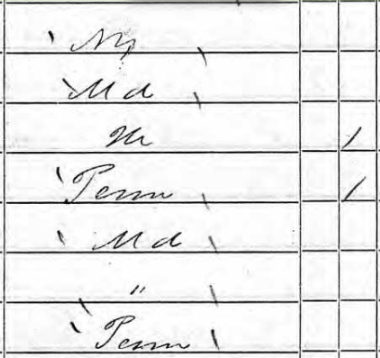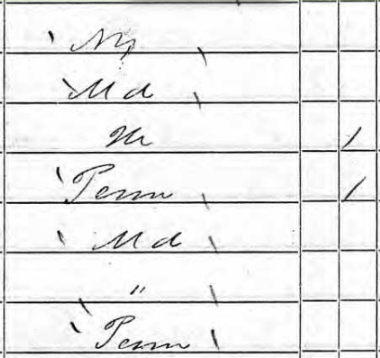I usually hate the phrase “Yes, but…” because the “but” is often followed by an excuse.
However there are times.

The image in this illustration shows that “Penn” and “Tenn” could easily be confused by a transcriptionist or indexer.
I realize that reading the entire page of entries would probably make it clear how the writer of the document made his “P” and his “T.” The difficulty with that is, if I am using an index or a database created from this record then I am not looking at the entire page. I am using a transcription of this page. That transcription may have been created by someone who was not careful about determining whether it was a “P or a “T.” That transcription may have been made by someone who was not as concerned about looking at the entire page as I would be.
And if I am using a place of birth as one of my search terms, which is sometimes necessary, I may not think of looking for my person as having a place of birth in Pennsylvania if every document I have on them indicates that they were born in Tennessee.
And while there are standard abbreviations for the states today and census enumerators were to use standard abbreviations for the time the census was taken, that did not always happen.
What “wrong ways” could that location in your background be transcribed?


One response
Indiana used to be abbreviated Ia, so, when finding a reference to someone born in Iowa, before it became a state or even a territory, should consider that IA means Indiana.